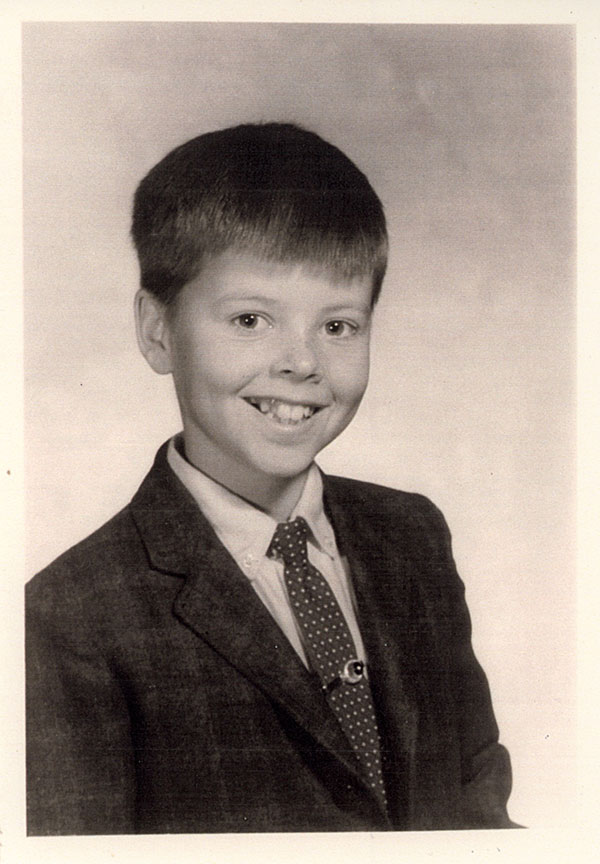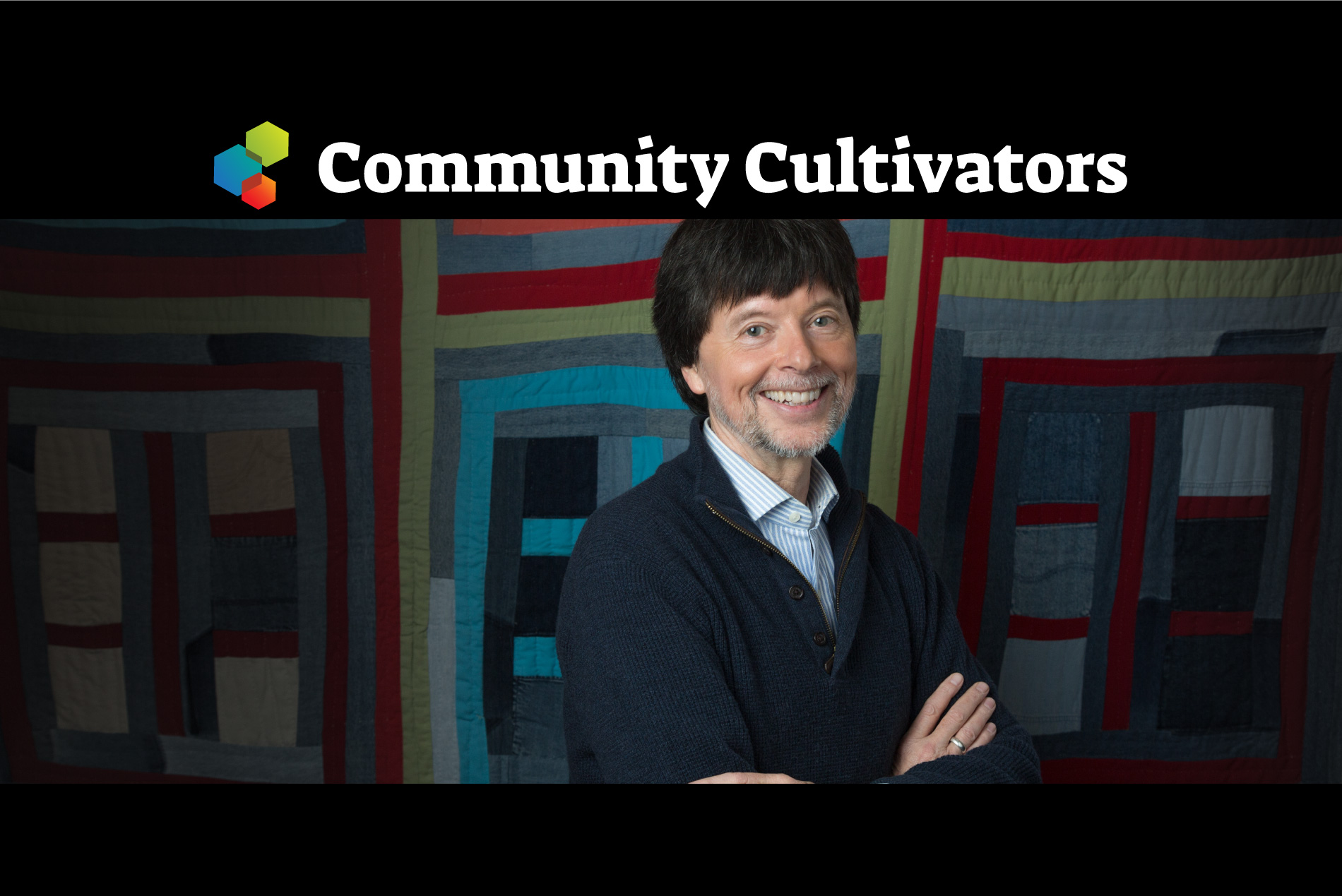Just as Early Learning Nation showcases the ways families, researchers and grassroots nonprofits and organizations are building an early learning nation—one community at a time—our Community Cultivators series highlights how innovators across all sectors build and sustain global communities from the ground up. We hope the series inspires your own early childhood work.
In this interview with Ken Burns, you’ll see how his passion for documentaries, amplified by a long-term partnership with PBS, has cultivated a global community of history lovers, educators and storytellers.
If you add it all up, Ken Burns and PBS have broadcast over 200 hours of documentary films. It might be impossible for one person to watch the entire body of work, but dip into any of the deep dives on baseball, jazz, the National Parks, and the Civil War, World War II and the Vietnam War, and you’ll find a chunk of storytelling that somehow crystallizes the overall narrative—and the pulse of the narrative imperative itself.

What prompted Burns’ lifetime engagement with film? Receiving an 8mm camera at sixteen helped, though upon reflection he says the camera itself was just a spark. The fuel consisted of more intangible factors, notably the loss of his mother to cancer five years earlier. Seeing film develop in a darkroom built by his father entranced the future director. Watching tears fall down his father’s face during a broadcast of Carol Reed’s Odd Man Out (1947) brought home the emotional power of the medium. “I’d never seen him cry before. And I realized that the movies provided for him a kind of emotional safe haven.”
A short list of the unforgettable, cinematic, indelible moments in Burns’ oeuvre would have to include:
- That tearjerker from his breakthrough 1990 series, The Civil War: Sullivan Ballou’s letter to his wife, written a week before losing his life in the First Battle of Bull Run, assuring her that “when my last breath escapes me on the battle field, it will whisper your name.”
- Baseball’s gripping account of Curt Flood, the St. Louis Cardinal who risked his career to win free agency.
- The moment in 2001’s Jazz, when Wynton Marsalis reacts in stunned silence in the face of a critic’s claim that white musicians invented the music he’s dedicated his life to.
- The saga, embedded in The Vietnam War, of Denton “Mogie” Crocker, a young man from Saratoga Springs, New York, who ran away from home in order to persuade his parents to let him enlist—only to lose his idealism, and then his life.
The more of his work you watch (without feeling any guilt for missing an episode here and there), the more you’ll discover what documentary filmmaking can accomplish. You also can gain insights into what good teaching—not just history teaching—can and should be.
“In school,” Burns says, “We often just dump facts and expository descriptions of what happened and forget that to anchor things in story is to make it permanent and memorable.
“The poet William Blake said you could see the world in a grain of sand,” Burns says, “And as much as we’re interested in taking on these big topics, we know that they’re sometimes best expressed by individual, bottom-up stories.” Take the seven-part series on the Second World War, in which the saga is told through the eyes of people from four geographically distributed American towns. “That helped anchor it in intimate human experience,” he says.
Continuing the Blakean wonder at how parts contain wholes, Burns asserts, “The architecture of the solar system and the architecture of the atom are the same, and if you can make those kinds of connections it becomes hugely important.”
To honor the subjects he treats, Burns strives to represent them in all their complexity. He muses, “You have to understand that sometimes the thing and then the opposite of the thing, as Wynton Marsalis once said to us, happen at the same time.” The wall of Burns’ editing room features a neon sign in lower-case cursive that reads, It’s complicated.
In education circles, this is called project-based learning, which Edutopia defines as “a dynamic classroom approach in which students actively explore real-world problems and challenges and acquire a deeper knowledge.” In Burns’ words, “Human beings will always feel that the thing that they’re proudest of, the work or the relationships that they care the most about, have benefited from their sustained attention.”
Burns’ faith in learning even holds up in the current media landscape. Asked about TikTok, the video app that is sort of the opposite of the Ken Burns documentary, he recalls, “When the Civil War series was about to be broadcast in 1990, all the critics were certain nobody would watch, because MTV’s two-and-a-half minute music videos had eroded the national attention span.”
Although he confesses not too much familiarity with the latest app, he says, “Don’t presuppose that TikTok can’t coexist with complexity and depth. But for all human beings throughout all time meaning has accrued in duration.”
If something scares Burns more than attention-sapping apps, it’s the widespread reaction against facts and truth. While acknowledging that propaganda has always existed, he says, “The extent of what we’re experiencing today is unprecedented. And it represents, perhaps, the greatest threat to the health of our country and to the health of its citizens, psychological as well as physical health.”
On all of his projects, Burns says, “I have made a commitment that we are not going to be propaganda, that we are not going to be promoting a particular view.” That means permitting lots of different views to coexist and trusting in the intelligence of the audience to sort it out. This is where teachers, scientists, journalists and citizens in general have a duty to affirm enduring values.
“It’s sort of what you do with your own kids. You’re going to ask them to be honest, and you’re promising them the same.”
Explore More
PBS: Ken Burns in the Classroom (lesson plans and resources)
https://www.pbslearningmedia.org/collection/kenburnsclassroom/home/
PBS: Ken Burns films
PBS: UNUM Ken Burns: exploring American history via scenes selected from more than 40 films that provide historical context for today’s conversations.
https://www.pbs.org/kenburns/unum

Mark Swartz
Mark Swartz writes about efforts to improve early care and education as well as developments in the U.S. care economy. He lives in Maryland.



